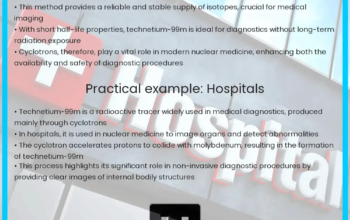Embarking on a PhD journey is akin to setting sail into uncharted waters. Each scholar finds themselves at the helm of a vessel, tasked with navigating an ocean brimming with intellectual challenges and opportunities. The critical juncture in this voyage arises when one must decide upon a research problem to pursue. This decision can shape not only the trajectory of one’s academic career but also the impact of one’s contributions to the field of study. Deciding on a research problem is both a profound opportunity and a daunting challenge, necessitating a multifaceted approach. This discourse aims to delineate key considerations that should inform this pivotal decision.
1. Identifying Personal Interests: The Compass for Direction
At the core of selecting a research problem lies personal interest. It is essential to delve into one’s intrinsic motivations, passions, and curiosities. A research topic should ideally resonate with the academic zeal that propels the student forward. This interest serves as the compass, guiding the researcher through the tumultuous waters of inquiry. Scholars should ask themselves: What subjects have piqued my interest during my education? Are there particular questions that linger in my mind, urging me to explore further? To evoke a metaphor, the research problem should feel less like a chore and more like a captivating story waiting to be told.
2. Reviewing Existing Literature: Charting the Seas
Once personal passions are delineated, the next phase involves a thorough review of the existing literature. This step is akin to charting a course through previously mapped seas. Engaging deeply with current research helps identify gaps, inconsistencies, and unanswered questions within the discipline. Notably, one should seek to distinguish between well-trodden paths and those that remain largely unexplored. By examining where the academic community stands, scholars can position their inquiries meaningfully, thereby contributing novel perspectives to their fields. One must immerse oneself in journals, dissertations, and ongoing projects — each document revealing tributaries that could lead to significant discoveries.
3. Consulting with Mentors: The Lighthouse in Mysterious Waters
Mentors serve as lighthouses that illuminate the path forward amidst the fog of uncertainty. They possess invaluable insights drawn from their own navigations through academic waters. Consulting with advisors and seasoned researchers can uncover not only potential research problems that align with current trends but also critical methodologies that might be employed. A mentor’s guidance can provide reassurance and enhance the rigor in defining a research question. The collaborative exchange of ideas is essential; mentoring relationships can illuminate aspects of a problem that may not be immediately apparent to the novice researcher.
4. Assessing Feasibility: The Ship’s Capacity
In the workshop of academia, research problems must align with the ship’s capacity, considering time, resources, and expertise. The feasibility of a chosen problem is crucial to its successful execution. Researchers should evaluate the availability of data, necessary resources, and their own skill sets when contemplating a particular inquiry. Additionally, understanding the timelines required to address research questions helps prioritize topics that can lead to successful completion within the proposed timeframe. One can effectively gauge feasibility through preliminary experiments or pilot studies that may yield insight into the scope of the problem.
5. Engaging with Broader Implications: The Cultural Currents
Beyond personal interest and feasibility, a compelling research problem should engage with broader societal and cultural currents. One must ponder the implications of their research — its potential to shape discussions, influence policy, or contribute to technological advancements. Selecting a topic rooted in relevance ensures that the research does not occur in a vacuum. The interplay between academia and the external world enriches the scholarly endeavor and provides a profound sense of purpose to the research. Thus, the question arises: how will this inquiry resonate beyond the ivory tower?
6. Willingness to Pivot: The Ever-Changing Tides
The academic journey is filled with unpredictable tides and currents. While initial enthusiasm for a specific problem may be robust, students should possess a willingness to pivot if new information emerges. Research is an iterative process, often necessitating adaptation as discoveries unfold. A successful scholar must remain agile, ready to alter their course if initial hypotheses are disproven or new avenues of inquiry reveal themselves. This adaptability is crucial for fostering innovative thinking and avoiding stagnation in research pursuits.
7. Continuous Evaluation: The Navigational Star
As one advances through the stages of the PhD, the chosen research problem should undergo continuous evaluation. Scholars must periodically reflect on their progress, assessing whether the research retains relevance and aligns with interdisciplinary advancements. Engaging in seminars, workshops, and academic conferences creates opportunities for dialogue regarding the research trajectory. Feedback from peers and mentors serves as navigational stars, aiding in recalibrating the course if necessary.
Conclusion: The Voyage’s End
Ultimately, the decision of which problem to pursue during a PhD is a multifaceted endeavor that encapsulates personal passion, scholarly rigor, and adaptability. It requires a deep understanding of both the microcosm of one’s interests and the macrocosm of societal relevance. This journey, marked by exploration and discovery, will shape not only the scholar’s career but also their legacy within the academic community. By carefully navigating these waters, one can embark on a research voyage that is rewarding, impactful, and forever etched within the annals of academia.












